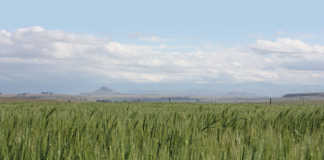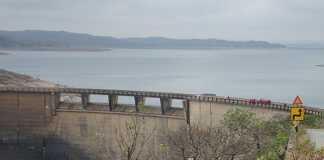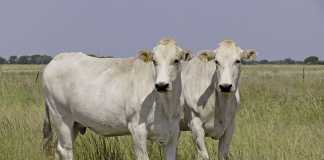Massive mining ventures planned in Mozambique and the Democratic Republic of Congo (DRC) are critically dependant on a regular supply of food for workers, said Agri SA deputy president Dr Theo de Jager.
“Major projects expect to employ tens of thousands of miners but they can’t feed them,” he said.
Official invitations were recently received from the DRC’s wealthiest province, Oriental, of which the capital Kinshasa has 8 million inhabitants, but no commercial agriculture. Invitations also came from Lubumbashi in the mineral-rich Katanga province, and a fact-finding delegation will visit soon.
Agriculture, Forestry and Fisheries minister Tina Joemat-Pettersson told Farmer’s Weekly at the union’s annual congress late last year that she was committed to helping South African farmers become established throughout Africa – partly to ensure Asian and South American competitors didn’t gain an unfair advantage and also because South Africa’s redistribution programme would create land shortages for white farmers at home, which meant opportunities would have to be found elsewhere on the continent.
She identified the DRC, Southern Sudan, Angola, Zambia and Uganda as priorities for government. Plans for Angola and the DRC, where all relevant bilateral agreements have been signed and ratified, are the most advanced.
Last month, Agri SA representatives met a top-level delegation from the Sudanese government, including minister of agriculture Abdehalin Alnutasue.
Dr de Jager said Northern Sudan has a thriving agricultural sector but relies heavily on low-yield flood irrigation. The country is a major sugar producer, with five processing mills, but has a shortfall of almost 1 million tons a year. South African farmers could introduce hi-tech production methods to substantially boost yield, and access large Middle Eastern markets.
The South African government’s priority is developing agriculture in Southern Sudan, which is poorly developed with mostly small-scale and subsistence farming. The south, which will hold a referendum next year on whether to secede from the north, has higher rainfall but lacks infrastructure. It also remains volatile, so security is a concern for farmers.
“We’re waiting on the minister’s word before exploring options in the south,” said Dr de Jager. “In the meantime, we’ll continue negotiations with the north. There’s no reason South African farmers can’t be involved in both.”
Last year, Agri SA signed a deal with the DRC, hailed as the largest of its kind in Africa, that will give South African farmers access to up to 10 million hectares of agricultural land. The first 15 farmers are signing contracts this month and expect to move to the DRC in July.
Agri SA said over 1 700 South African farmers expressed interest in the deal. A selection process whittled this number down to 90, who would lease 79 000ha to grow sugar, maize, mangos, paprika, and raise cattle. Criteria included farming capability, commitment to progressive labour practices, engagement with local cooperatives and skills transfer.
Angola recently completed a survey that identified over 5 000ha of land available in several municipal districts in the Cuanza-Sul and Huambo provinces. A visit by South African farmers was of “utmost urgency and importance”, an Angolan government representative said. A delegation expects to inspect the sites in early April.
TAU SA warned of “hair-raising stories” from farmers who had established themselves elsewhere in Africa, describing how governments broke contracts and had a lack of schools and medical facilities, its general manager Bennie van Zyl said in a statement.
Many fled rebel attacks in the DRC in 1997 with only the shirts on their backs, said Van Zyl. In the DRC, Mobuto Sese Seko seized 2 000 foreign-owned enterprises, including farms, ranches and plantations. “Who is to say this won’t happen again?” asked Van Zyl.
Dr de Jager said the union only supported agreements negotiated through diplomatic channels and backed by formal treaties. Besides, times have changed. “Ten of the 17 South African farmers driven out of the DRC in 1997 were the first to put their names on the list to go back,” he said. “Farmers will go where there are good opportunities.”













